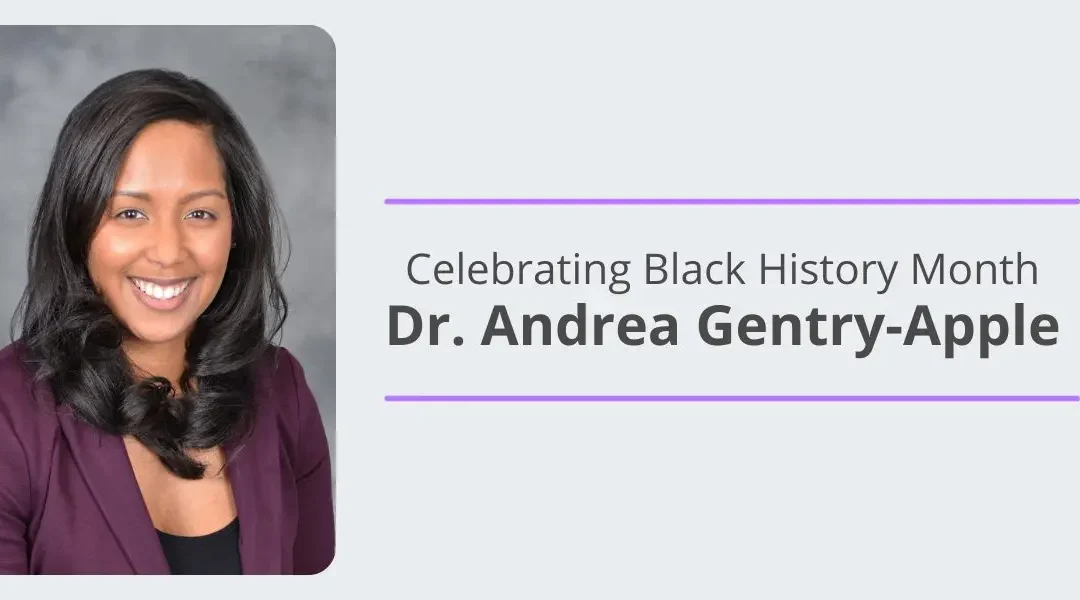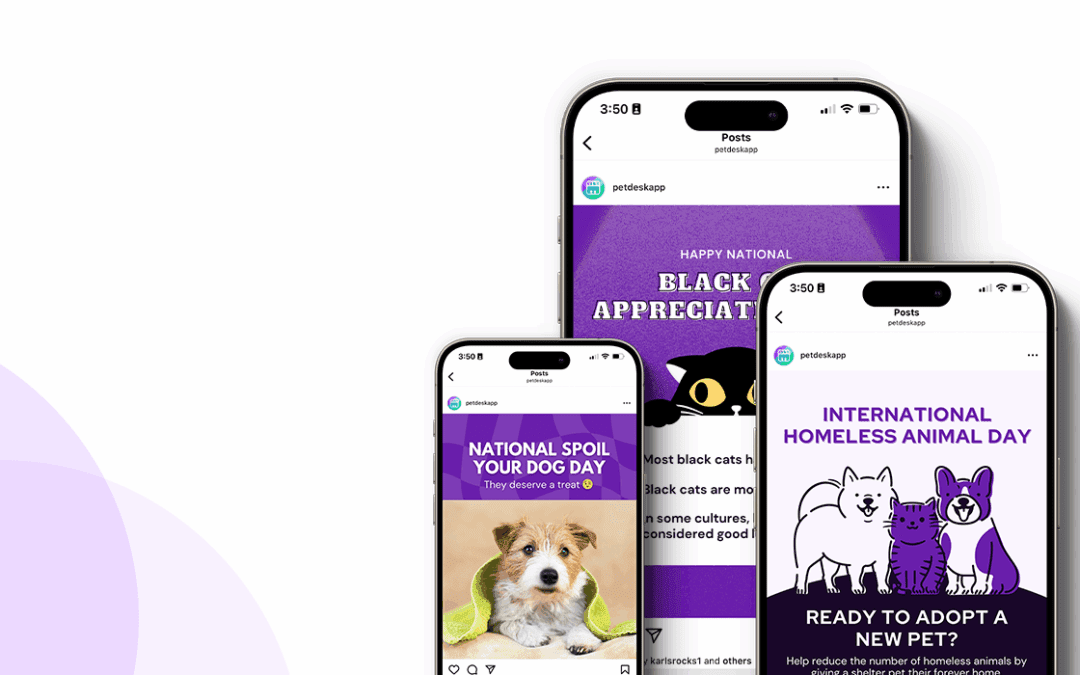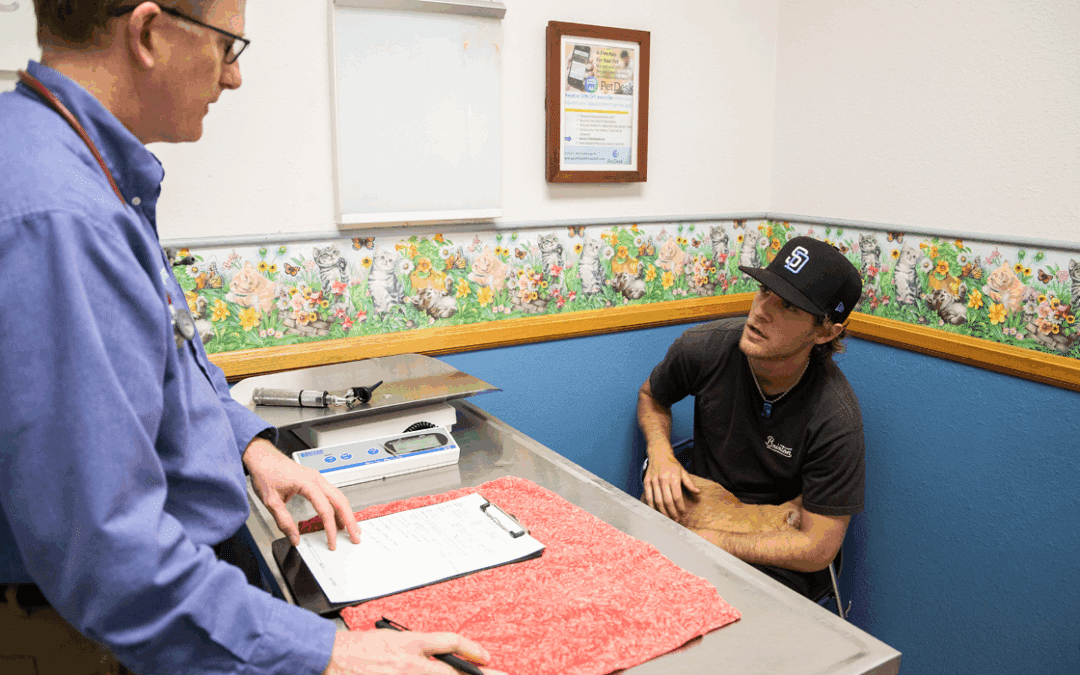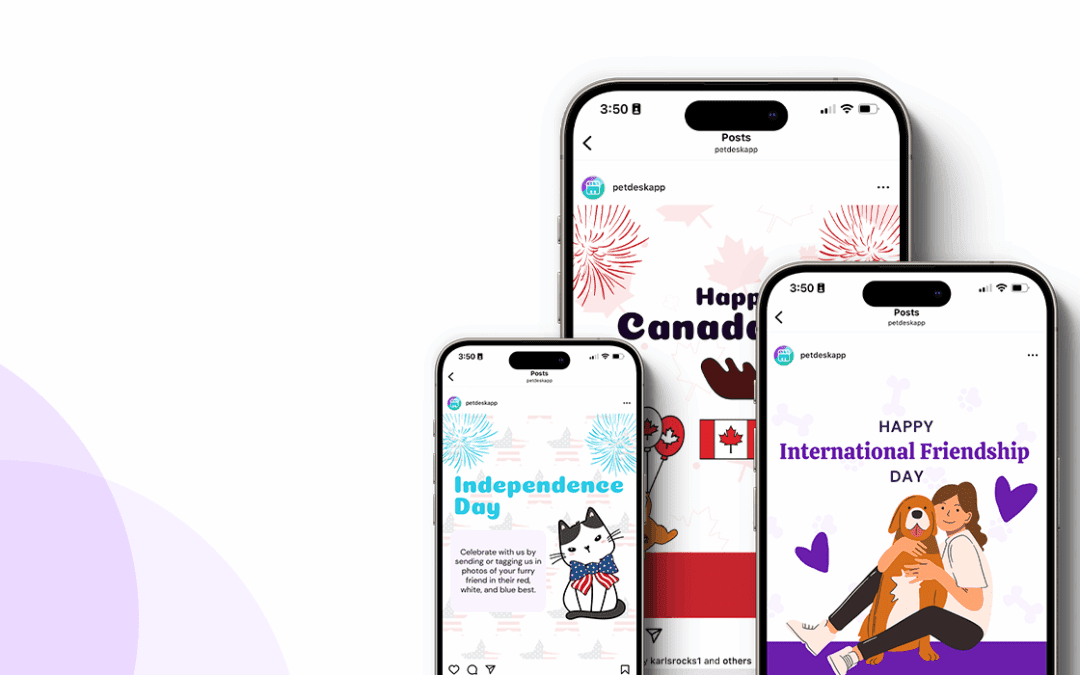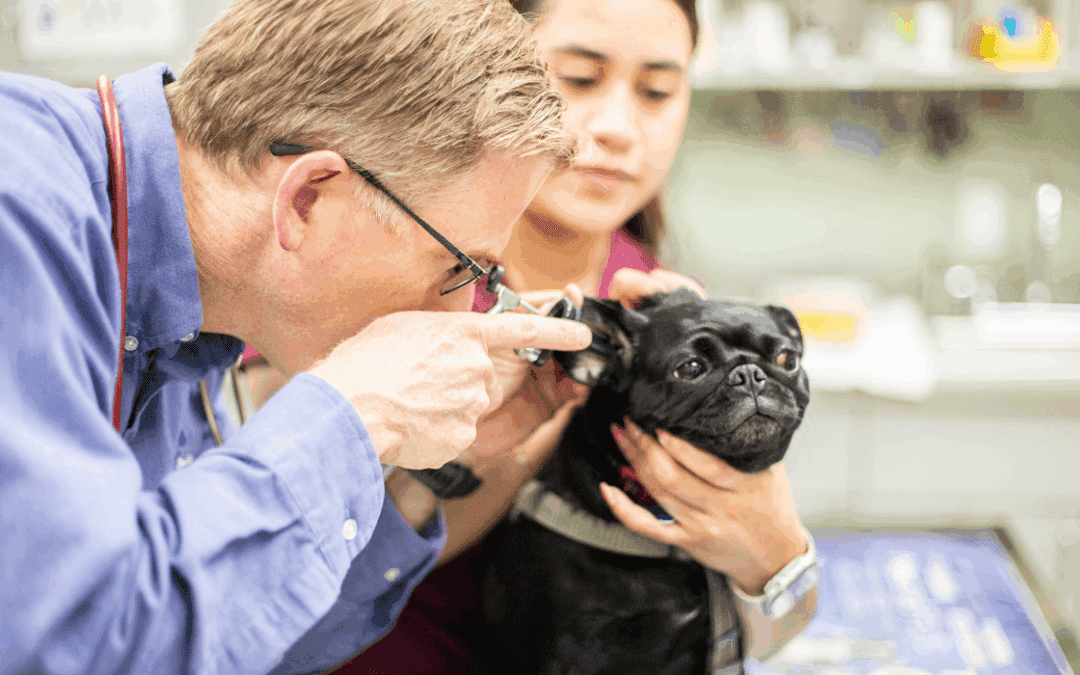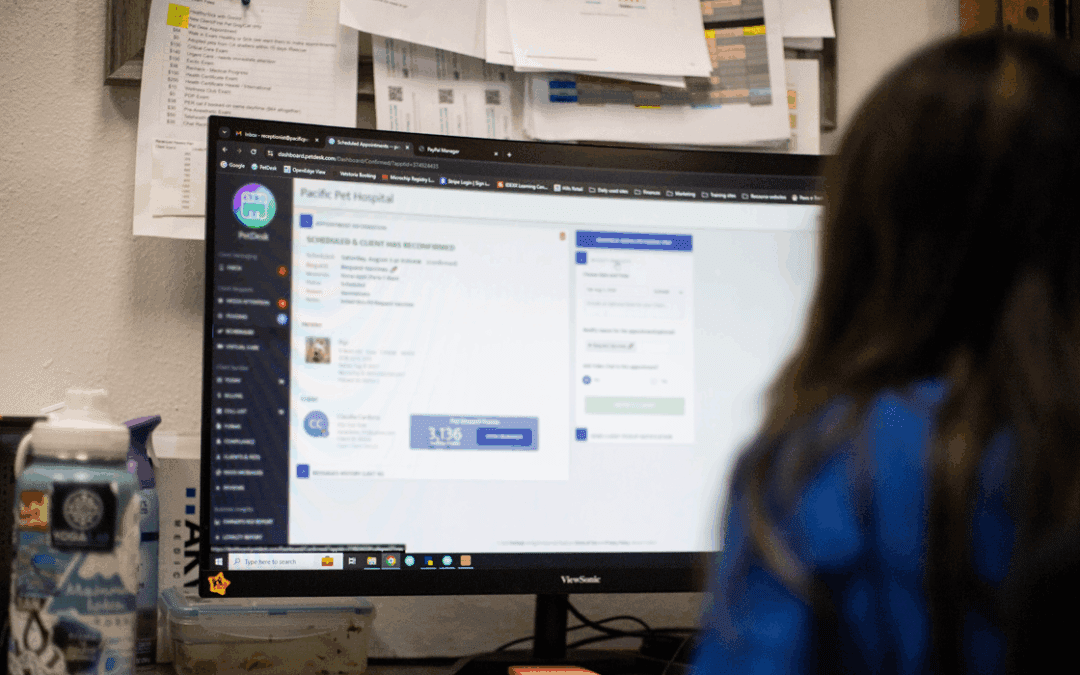With dreams of having a large animal practice, once she finished her large animal internship at Tuskegee University, her career took a quick left turn. An opportunity to teach at her undergraduate alma mater emerged. With a passion for veterinary medicine and helping students accomplish their goals, she began teaching and coordinating the Pre-Veterinary Program.
Dr. Gentry-Apple is currently a Clinical Associate Veterinarian and Coordinator of Veterinary Education at North Carolina A&T State University. In this role, she strives to increase the admission of underrepresented students into Veterinary Medical Programs by incorporating mentorship and strong academics to create a diverse and competitive applicant. Although her primary focus is in academia, she still practices veterinary medicine in North Carolina. Outside of her education work, Dr. Gentry-Apple is the Vice President of the North Carolina Association of Minority Veterinarians and holds several other local positions.At PetDesk, the I.D.E.A. (Inclusion, Diversity, Equity, and Allyship) group is an employee-organized alliance and safe space for discussion and action around inequalities influencing our country, our industry, and ourselves.
In February, we’re excited to celebrate Black History Month by learning more about Black professionals in the veterinary community to highlight their stories and discuss what Black History Month means to them.
The theme for Black History Month 2021 is The Black Family: Representation, Identity, and Diversity.
Meet Dr. Andrea Gentry-Apple
Dr. Andrea Gentry-Apple is a proud alumnus of North Carolina A&T State University and a 2015 graduate of North Carolina State College of Veterinary Medicine. Like many others, her passion for veterinary medicine started early. Her passion for food animal medicine and the advancement of minority farmers started during her undergraduate career and flourished during her veterinary training. During her tenure, she had an active voice for increasing diversity amongst the veterinary profession and veterinary colleges, soon becoming an enduring passion.
With dreams of having a large animal practice, once she finished her large animal internship at Tuskegee University, her career took a quick left turn. An opportunity to teach at her undergraduate alma mater emerged. With a passion for veterinary medicine and helping students accomplish their goals, she began teaching and coordinating the Pre-Veterinary Program.
Dr. Gentry-Apple is currently a Clinical Associate Veterinarian and Coordinator of Veterinary Education at North Carolina A&T State University. In this role, she strives to increase the admission of underrepresented students into Veterinary Medical Programs by incorporating mentorship and strong academics to create a diverse and competitive applicant. Although her primary focus is in academia, she still practices veterinary medicine in North Carolina. Outside of her education work, Dr. Gentry-Apple is the Vice President of the North Carolina Association of Minority Veterinarians and holds several other local positions.This interview has been edited for clarity and brevity.
PetDesk:
Tell us about where you call home, your family, and how race and identity impacted your upbringing and influences.
Andrea Gentry-Apple:
I‘m originally from Columbus, Ohio, in a little suburb called Gahanna. I came from a two-parent household, and I have an older brother. I had a middle-class upbringing in Ohio and I really liked the sciences, however I did not think I wanted to be a veterinarian.
Throughout my formative years, I grew up in a suburb where the majority of my classmates didn’t look like me. I went to a predominantly Black church where I did see those that looked like me, but our high school was predominantly white, so race always played a role, I just didn’t know how big of a role it played until later.
When you’re that young, you don’t think about it at all. You don’t catch the microaggressions that are said, so, I really didn’t see too much of the racial divide until I came to North Carolina A&T (NCAT) for my undergraduate in animal science. It’s a historically black university, but I got there and felt like I didn’t fit in; I was with all these people that looked like me, but it was culture shock. You wouldn’t think that coming to a place where everyone looks like you would leave you trying to figure out if you’re Black enough.
That never crossed my mind until I met a Black veterinarian when I came to NCAT, which is crazy. Then it came to mind that I had shadowed veterinarians in high school but I’d never met a Black one.
PetDesk:
When you got to North Carolina, were there any mentors or educators that helped not only with your veterinary career but also to bridge that gap of culture shock?
Andrea Gentry-Apple:
Oh gosh, yes! Tracy Hanner, who is a veterinarian in North Carolina, was at NCAT as the coordinator for our laboratory. He was like a father figure. He gave you an unfiltered representation of what it was like; he was the first African American male graduate in North Carolina State’s College of Veterinary Medicine and he just so happened to be our professor. He made sure that you had the opportunity and that you knew the sky’s the limit.
I remember when I was deciding which Veterinary program to apply to and he gave me the real deal. I had a few universities on my list, but I had it in my mind to not go to another Historically Black Colleges and Universities (HBCU). I knew this industry didn’t look like me, so I thought going to another HBCU would give me a false comfort. Now, thinking back on it, I had the completely wrong idea. Dr. Hanner sat me down and said that going to some of these other universities is more than an educational game, it’s a mental game. It’s no longer just come, get your degree, and be a great vet. It’s a game that you have to play to make sure you’re protecting your emotional stability.
Dr. Doris Fultz was another mentor who graduated out of Tuskegee and was also one of my professors. She was one of those professors that scared you – the amount of information that she knew was astronomical and she taught three of the four hardest classes in animal science. I remember talking to my mom one day saying “I don’t get it, why does she make it so hard?” After getting into vet school, I realized why. When I came back to NCAT I actually ended up with her old position. When we talk now I tell her “I can never say thank you enough for what you did to prepare us.”
Dr. Allen Cannedy, who is the Diversity Coordinator for North Carolina State College of Veterinary Medicine, continues to be a mentor of mine. He was the one I went to in school when something didn’t seem right or I was frustrated. He still is that person from both the educational standpoint, as well as an overall mentor of life.
PetDesk:
What do you think is most valuable in bringing Diversity, Equity, and Inclusion (DEI) initiatives to the education and veterinary space?
Andrea Gentry-Apple:
The veterinary profession has the most diverse clientele. Our professionals within the space have their own diversity on an individual standpoint, but the visual aspect of diversity is extremely lacking when our clientele is outrageously diverse. The overall value DEI brings to the veterinary profession is that I’m able to relate to the people I serve, the animals I serve, the students I serve, and the employees I serve. They are all different so I’m able to create a safe space. I have to be able to create that safe space in order to be effective.
A lot of times DEI initiatives really fail in mentioning that it’s a lucrative industry. I’ve noticed that when I see an ethnically diverse client and they see me, I can see they are comfortable. You really begin to see better patient compliance and this can actually add value to your services. In the veterinary profession, we give ourselves to service. People don’t come into veterinary medicine for the money. We come in to be able to promote the human-animal bond, public health, or other reasons, but we have to be able to show the value. That’s really being able to create a safe space in that environment.
PetDesk:
What does this year’s theme for Black History Month, which is the Black Family, mean to you personally?
Andrea Gentry-Apple:
The meaning of the Black family for this year’s Black History Month is rooted in my soul. My dad and I always had three rules:
-
- Don’t forget where you came from. You cannot forget your last name (see my hyphenated name!). I am so proud of where I came from – the good, the bad, the ugly – all of it makes me who I am.
- Don’t turn stupid, don’t turn bougie. It’s not okay to forget all of the common sense that you’ve gained over your years. All of your smart choices may not be right choices, but you think through those choices and learn along the way. The other part is don’t turn bougie, meaning, don’t forget the people that came before you; don’t ever get too big for your britches. Understand where you came from; someone was a ladder for you and you have to be a ladder for someone else. I will do my best to pass that lesson on to everyone else after me.
- Be safe. It didn’t matter what was happening, it didn’t matter what was going on, the goal is to always get home and always promote a safe space for your family.
I learned those three rules from my parents and now I’m a mom, which drives me to want to have those same values. My husband thinks of family in the exact same way as I do; we’re a family unit. Our unit definitely expands to include parents and uncles and cousins and everything else, however we’re family first. This is where you should feel safe and know that secrets are not meant to be kept. Surprises, yes, but secrets, no.
PetDesk:
Last question! Do you have any tips for the I.D.E.A. team at PetDesk?
Andrea Gentry-Apple:
There are going to be times, especially in DEI that you will get pushed back, but you cannot stop. If DEI efforts are stopped once they’ve started, it means it wasn’t important. That’s where we’re at currently because all of these companies talked about DEI before. However, they stopped working on it, and then 2020 happened and rocked all of our worlds and now it’s important again.
DEI is not a trending statement.
It’s either important to you, or it’s not. If it’s going to be important to the CEOs of companies and admins of schools, then it never ceases. That’s when you’re starting to see, particularly in Vet schools, the drastic change in diversity efforts and the shift in students. They started 5-10 years ago when it became important and they never stopped. Now, their class size or their classes look different because they never stopped. All of a sudden, they start coming into your business, coming into your company, coming into your school, and you look around you’re like “wow, I really like the people I work with.”
We have differences of opinions, political affiliations, and religious affiliations. That’s all fine and good because we’re also able to talk to each other, because it’s always been a core value from the time you started up until now, and it will continue.
See the power of PetDesk for yourself—for free
Save time and grow your business with custom websites and digital marketing, 24/7 error-free booking, a PIMS-VoIP phone system, plus a client engagement platform with a mobile app.

